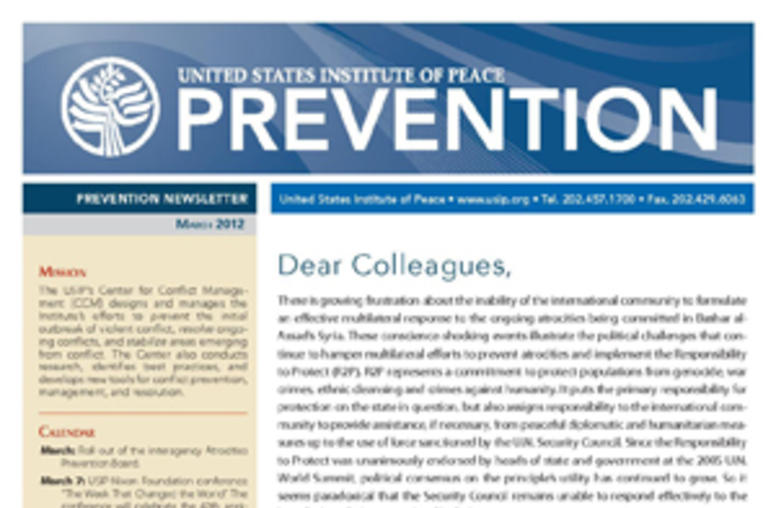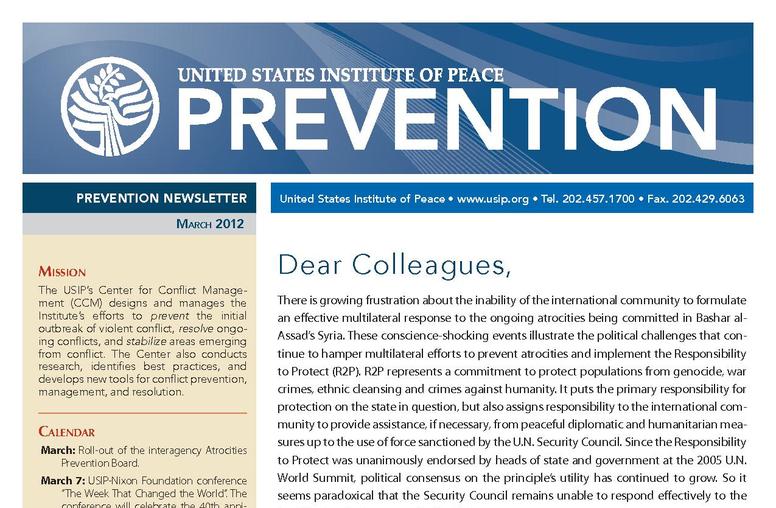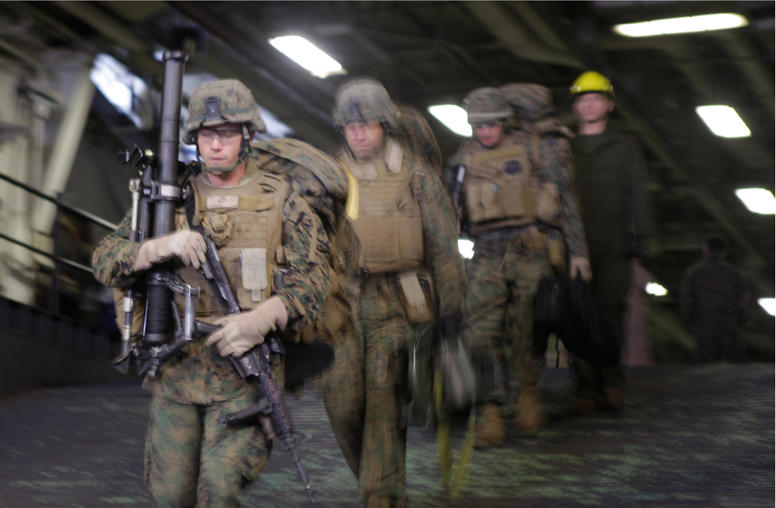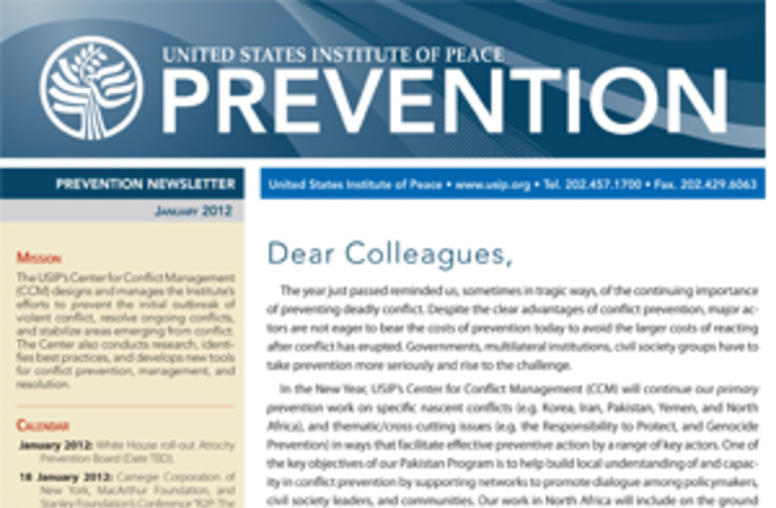Publications
Articles, publications, books, tools and multimedia features from the U.S. Institute of Peace provide the latest news, analysis, research findings, practitioner guides and reports, all related to the conflict zones and issues that are at the center of the Institute’s work to prevent and reduce violent conflict.
What Does North Korea's Ballistic Missile Test Tell Us about the Reclusive Country?
John Park, a senior program officer who directs USIP's Korea Working Group, examines what North Korea's planned long-range missile test reveals about the hermit nation and what the after effects will be for the key parties.
North Korea’s Planned Missile Test Steals the Spotlight at the Seoul Nuclear Security Summit
John Park, a senior program officer who directs USIP’s Korea Working Group, examines North Korea’s preparations for a “satellite launch,” which has cast a long shadow over the Seoul Nuclear Security Summit
Briefing on the Seoul Nuclear Security Summit
On March 12, the U.S. Institute of Peace’s (USIP) Center for Conflict Management and the Harvard Kennedy School’s Belfer Center for Science and International Affairs co-convened a closed briefing on the Seoul Nuclear Security Summit for senior diplomats of countries whose head of state will be participating in the summit. Ambassadors, Deputy Chiefs of Mission, and Heads of Political Section from over 30 embassies participated in the briefing.

USIP Prevention Newsletter - March 2012
The March 2012 Prevention Newsletter features a spotlight on U.S.-Pakistan Relations: The year 2011 saw a progressive deterioration in the U.S.-Pakistan relationship. But despite the fact that mutual mistrust is probably at an all time high, there is no appetite to allow the relationship to rupture.
U.S.-North Korea Agreement: A Breakthrough?
John Park, a senior program officer who directs USIP’s Korea Working Group, analyzes the U.S.-North Korea agreement announced on February 29. The North Koreans will suspend nuclear activities at its Yongbyon complex and long-range missile tests, and the U.S. will provide 240,000 tons of nutritional assistance to North Korea. While it may not be a breakthrough, this agreement does constitute a modest initial step forward in dealing with North Korea.

USIP Prevention Newsletter - March 2012
The March 2012 Prevention Newsletter features a spotlight on U.S.-Pakistan Relations: The year 2011 saw a progressive deterioration in the U.S.-Pakistan relationship. But despite the fact that mutual mistrust is probably at an all time high, there is no appetite to allow the relationship to rupture.

Strengthening the Civilian-Military Link: USIP and Navy-Marine Corps Coordination
The role of the Navy and Marine Corps is critical to the growing importance of the Asia Pacific region in national security strategy. Recently, conflict management and peacebuilding experts from the U.S. Institute of Peace participated in the Navy’s biggest amphibious exercise in a decade, Bold Alligator, as part of USIP’s expansion of civilian-military cooperation and training.

USIP Prevention Newsletter - January 2012
The January 2012 Prevention Newsletter features a spotlight on U.S.-Iran relations: Iran seems to be on a collision course with the international community. The U.S. and its allies have to find a way to respond effectively to Iran, without feeding the very forces seeking conflict with the West.
Analysts Laud U.S. Commitment to Asia
The Obama administration’s reaffirmation of American engagement in the Asia-Pacific region for strategic and economic reasons is welcome, but describing it as a “pivot” toward the region in the wake of U.S.-led wars in Iraq and Afghanistan neglects the continuity through decades of U.S. involvement in the region, three senior foreign policy figures from the United States, Japan and South Korea said at a forum sponsored by the United States Institute of Peace (USIP) on December 15.
On the Issues: The Fog of the Post-Kim Jong-il Period
John Park, a senior program officer who directs USIP’s Korea Working Group, analyzes the key policy issues arising from the sudden death of North Korean leader Kim Jong-il on December 17.